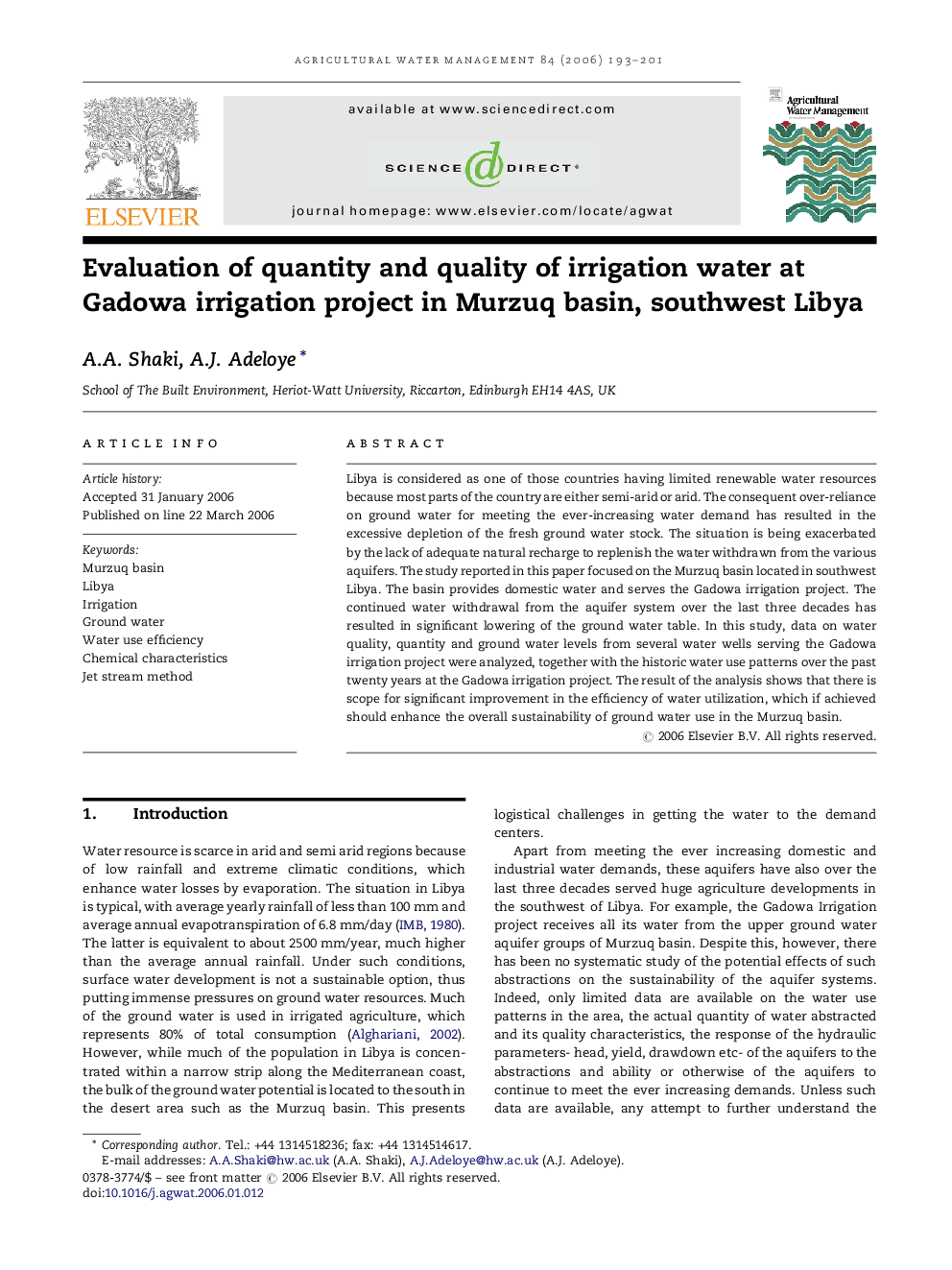| Article ID | Journal | Published Year | Pages | File Type |
|---|---|---|---|---|
| 4480600 | Agricultural Water Management | 2006 | 9 Pages |
Libya is considered as one of those countries having limited renewable water resources because most parts of the country are either semi-arid or arid. The consequent over-reliance on ground water for meeting the ever-increasing water demand has resulted in the excessive depletion of the fresh ground water stock. The situation is being exacerbated by the lack of adequate natural recharge to replenish the water withdrawn from the various aquifers. The study reported in this paper focused on the Murzuq basin located in southwest Libya. The basin provides domestic water and serves the Gadowa irrigation project. The continued water withdrawal from the aquifer system over the last three decades has resulted in significant lowering of the ground water table. In this study, data on water quality, quantity and ground water levels from several water wells serving the Gadowa irrigation project were analyzed, together with the historic water use patterns over the past twenty years at the Gadowa irrigation project. The result of the analysis shows that there is scope for significant improvement in the efficiency of water utilization, which if achieved should enhance the overall sustainability of ground water use in the Murzuq basin.
